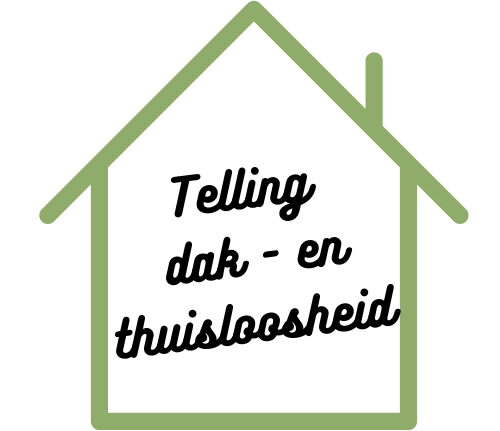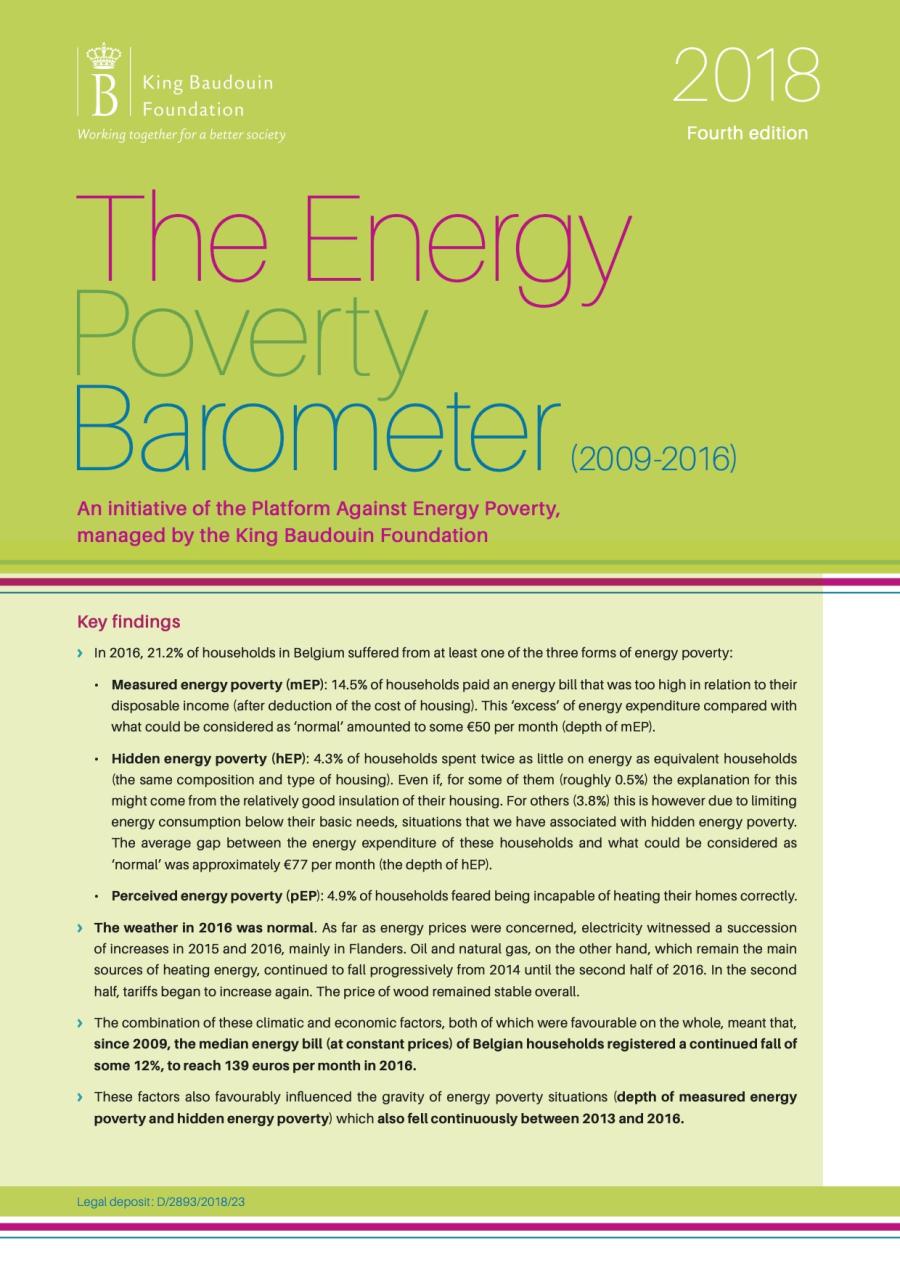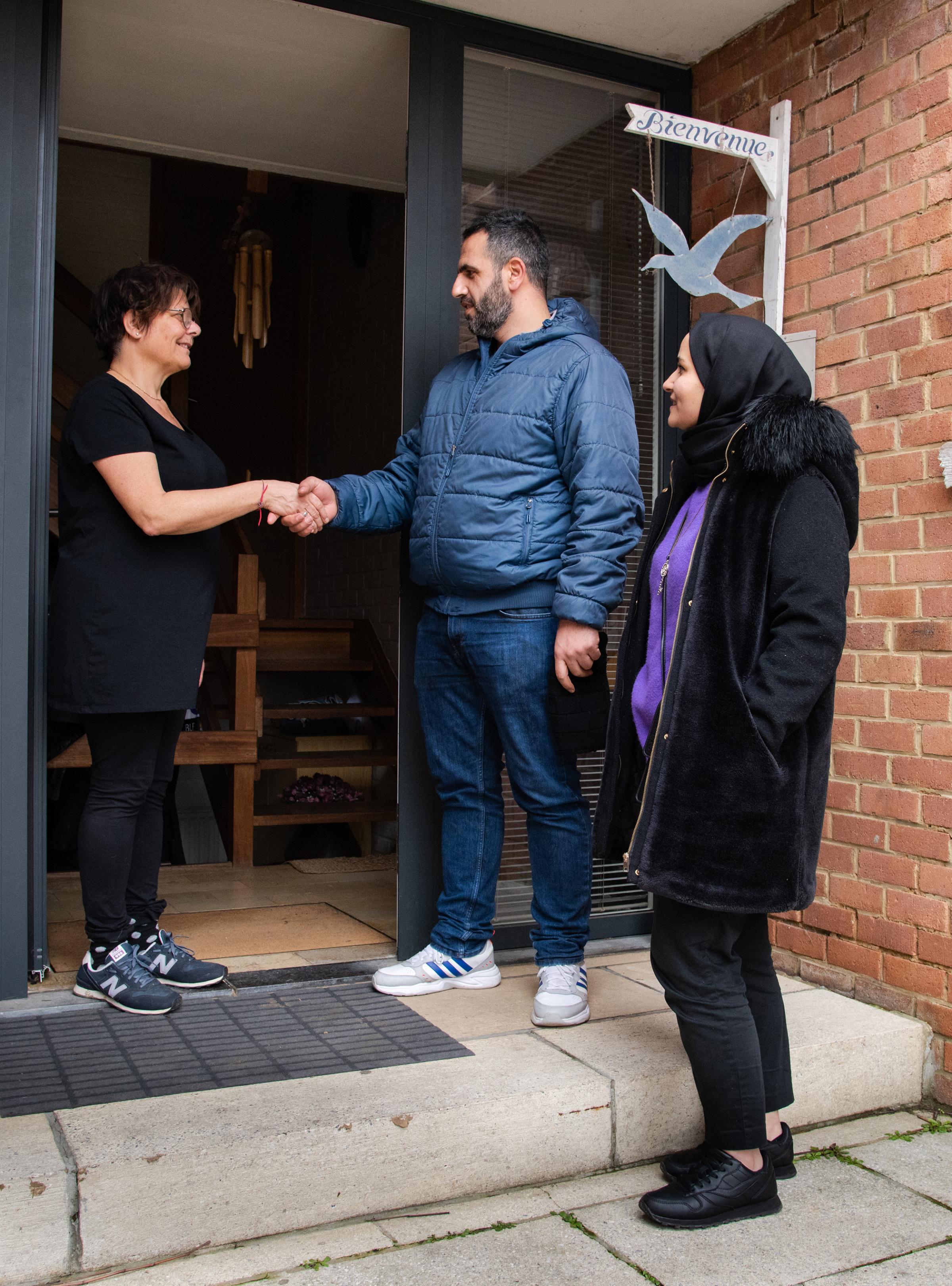
The search for somewhere to live: yes, but not alone!
Dorette is about to inaugurate the ‘Auton’Home’ project established by the Collectif de Femmes in Louvain-la-Neuve. The association is going to sign a rental agreement on her behalf – for as long as it takes for her landlord to feel reassured – before the agreement is then taken over by the tenant. This original project, with a ‘sliding tenancy’, is benefitting from support from the King Baudouin Foundation, as part of its activities destined to facilitate the access of vulnerable people to decent housing.
“When I arrived in Belgium, after the years of horrors I’d witnessed in Cameroon, it was like paradise for me.” At the end of a long journey that took her through Algeria and Libya in order to flee from her violent husband, four years ago Dorette finally put down her bags in Belgium. She waited for an answer to her asylum request in the Fedasil centre in Lustin, together with her daughter, aged three and a half. “I felt safe, respected, listened to. I had never known that!”, she still marvels. And since then, the clouds that were still on the horizon have lifted: her young son has been able to join her, so now, the three of them form a real family. Her eldest son has begun to study in Romania, but he too will join the family as soon as possible.
A new nightmare
Unfortunately, despite the immense relief of having obtained refugee status, more anguish was still to come. “In order to leave the Fedasil centre, we had to find somewhere to live and that’s when I began to understand the reality of this country, that there were also some less amusing aspects.” The search for decent housing when you are in a situation like Dorette’s seems like mission impossible: "People are afraid, afraid of coloured people. They afraid of people who are at the CPAS. Afraid of refugees. Afraid of women alone with children. So when you add up all of that, you can imagine what it’s like…” Dorette, however, is not a woman who gives up easily: she persisted, she moved heaven and earth. The Fedasil team put her in touch with the Collectif de Femmes in Louvain-la-Neuve. The association supported and encouraged her, searched for options with her. "In the end, I found a lovely little house, clean and in good condition. The owner asked me if I liked it – can you imagine! It was a miracle.” Much relieved, Dorette began to study to be a carer and now she is employed part-time in a care home in Walloon Brabant.
And what if the tenancy agreement became ‘sliding’?
Dorette nevertheless has had to take up her pilgrim’s mission once more: the house in question is too cramped for a family that will soon be four in number. So she has turned once more to the Collectif de Femmes. And it was here that a magnificent idea germinated: what if the Collectif signed the rental agreement on her behalf and accepted all the responsibilities vis à vis the landlord? And what if the association then sub-let the house to Dorette, just for as long as the landlord needed to feel reassured, before the real tenant then took over the agreement in her name? This technique, known as a ‘sliding rental agreement’ (because it ‘slides’, after a period of six to twelve months, from the Collectif de Femmes towards the tenant), is by its very nature an agreement that reassures owners (private or institutional, such as social housing agencies) and it significantly increases the chances of vulnerable people finding a place to live, which is a real challenge for them.
This great idea was spotted by the King Baudouin Foundation which, through its Auton’Home call for projects, aims to encourage access to housing for the most vulnerable people in our society, such as refugees and migrants. Isn’t access to a decent place to live one of the key components of inclusiveness in a host country’s society for such people? The Collectif des Femmes’ idea now carries the very eloquent name of ‘Tremplin pour l’auton’Home’ie’ (Springboard for Auton’Hom’y). Dorette will be the first beneficiary, but obviously not the only one: “If we could just introduce some ten proprietors to as many families, women alone with children, young adults who have just come of age and other vulnerable people, it would be great”, enthuses Amancay Egas Torres, one of the lynchpins of the Collectif de Femmes. "For the proprietors, it’s an opportunity to broaden their horizons, break down stereotypes and experience heart-warming encounters. For the tenants, on the other hand, it’s a promise of security, inclusion and an opportunity to build relationships. It’s a win-win situation for everyone.”
Autonomy in sight
The association is, nevertheless, very conscious of the fact that housing is only one component of the needs of vulnerable people: "Housing alone is not sufficient: these people also need social ties, legal support, access to culture, training possibilities, vocational guidance, access to getting a driving licence and so on”, stresses Amancay. "At the Collectif de Femmes, we provide them with support in all aspects of their life. And this with a single objective: that of enabling them to recover their often-damaged dignity, their shattered self-confidence and, at the end of the day, their citizen’s autonomy.”
This photo was taken before the COVID-19 crisis. "The ‘sliding tenancy’ reassures owners and increases the opportunities for vulnerable people to find somewhere to live."
Don’t be tempted to think that it is the Collectif de Femmes that searches for homes whilst prospective tenants take refuge in hope and expectation. This is not at all the case. Those looking for homes go from street to street, notebook in hand to jot down addresses and mobile phone at the ready to photograph the posters. It’s only later that the association takes over, playing the role of mediator, reassuring property owners who are scared by the unknown and difference. “I have regained my serenity”, laughs Dorette. “Life has led me to meet some magnificent and caring people. I am now confident, my children and I will no longer be confronted with rejection or fear.”
More about the ‘Auton’HOME’ call for projects
In continuation of the action plan implemented from 2015 to 2019 on the reception and integration of refugees, and parallel to the activities that it leads to facilitate access to housing for the most vulnerable people, the King Baudouin Foundation has launched the ‘Auton’HOME’ call for projects. 21 projects in total have benefitted from support: 8 projects in the Wallonia-Brussels Federation region, amounting to 300,000 euros (including the ‘Tremplin pour l’auton’Home’ie’ project of the Collectif de Femmes in Louvain-la-Neuve) and 18 projects in Flanders, for a total of 298,200 euros.
Other stories
Inspiring engagement!
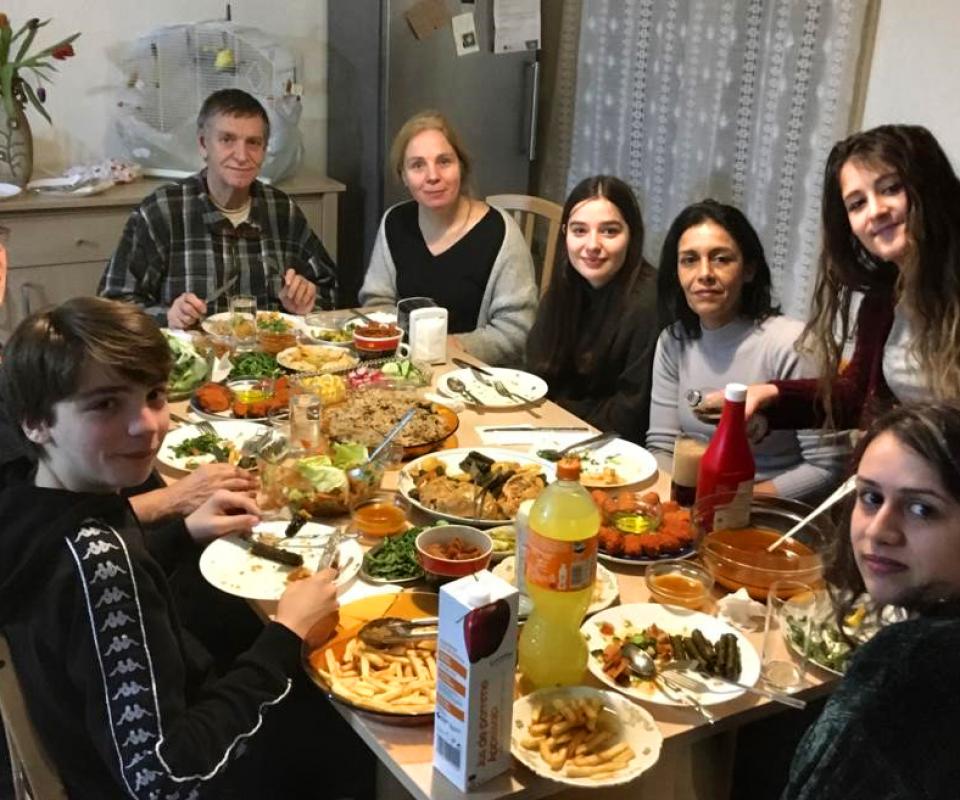
More than a roof over your head
Housing
In late 2019 Zinab, from Syria, moved with her children into a home in Boechout. A good reason for a festive diner.
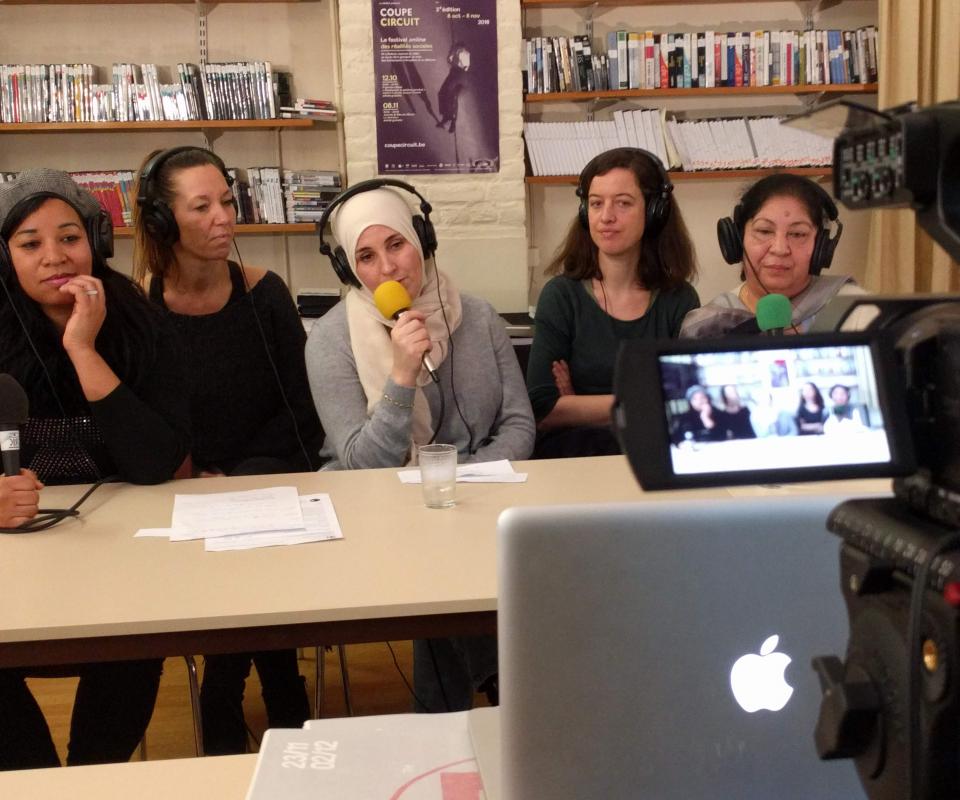
Promoting critical thinking and self-expression
"The women are encouraged to develop a critical view of the world around them and to play an active role in society."
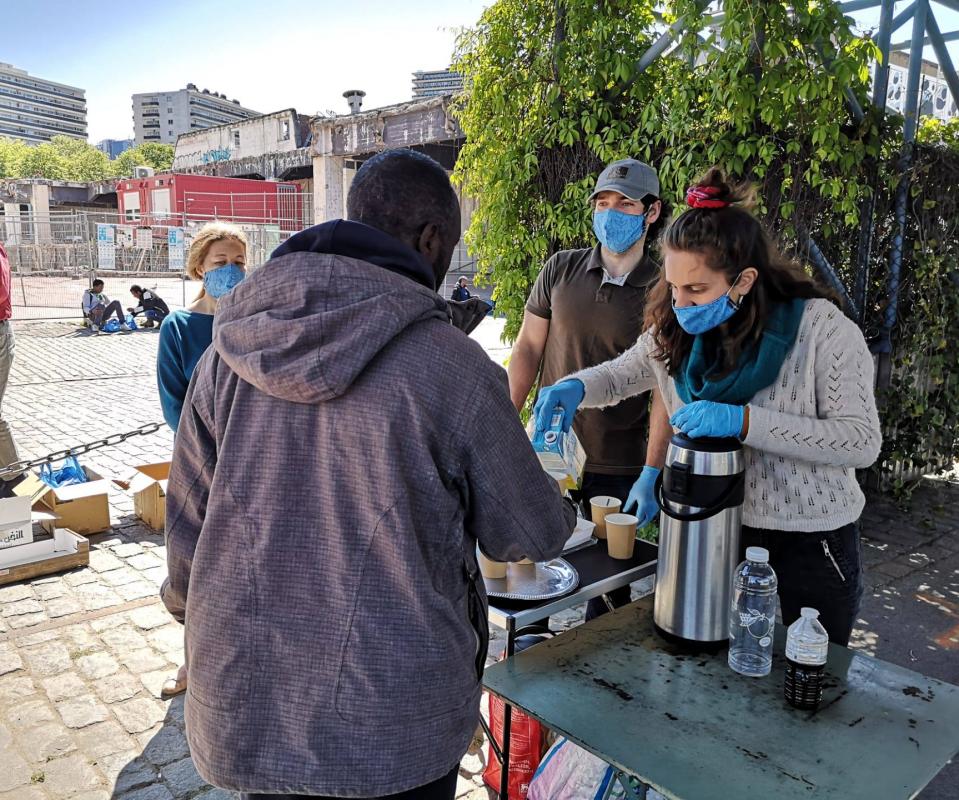
Les Cuistots Solidaires, helping refugees and winning hearts
"We provide food aid and a little humanity to extremely vulnerable people."
Other calls
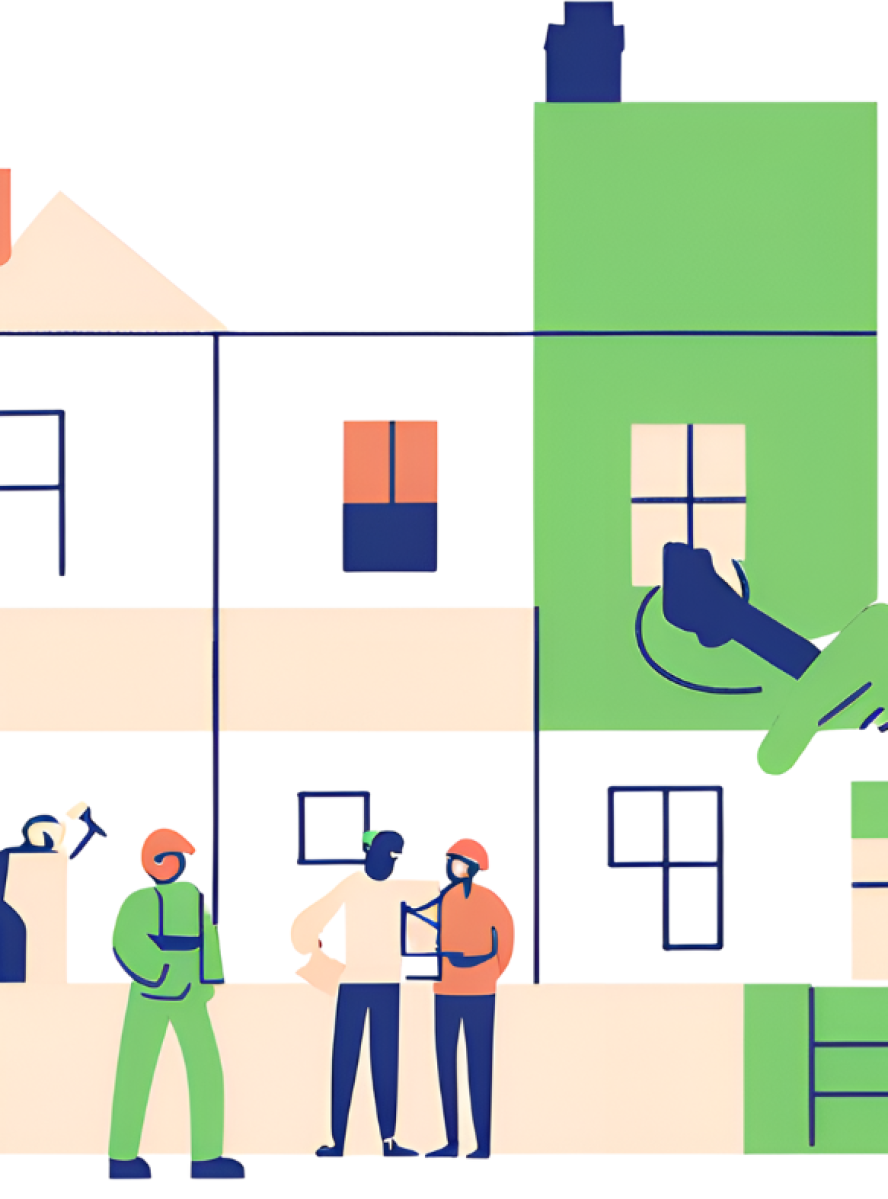
Housing Reno-Hope Award
A recognition for organisations creating additional housing through renovation for people in vulnerable situations
Selection announcedOther publications
Other philantrophy
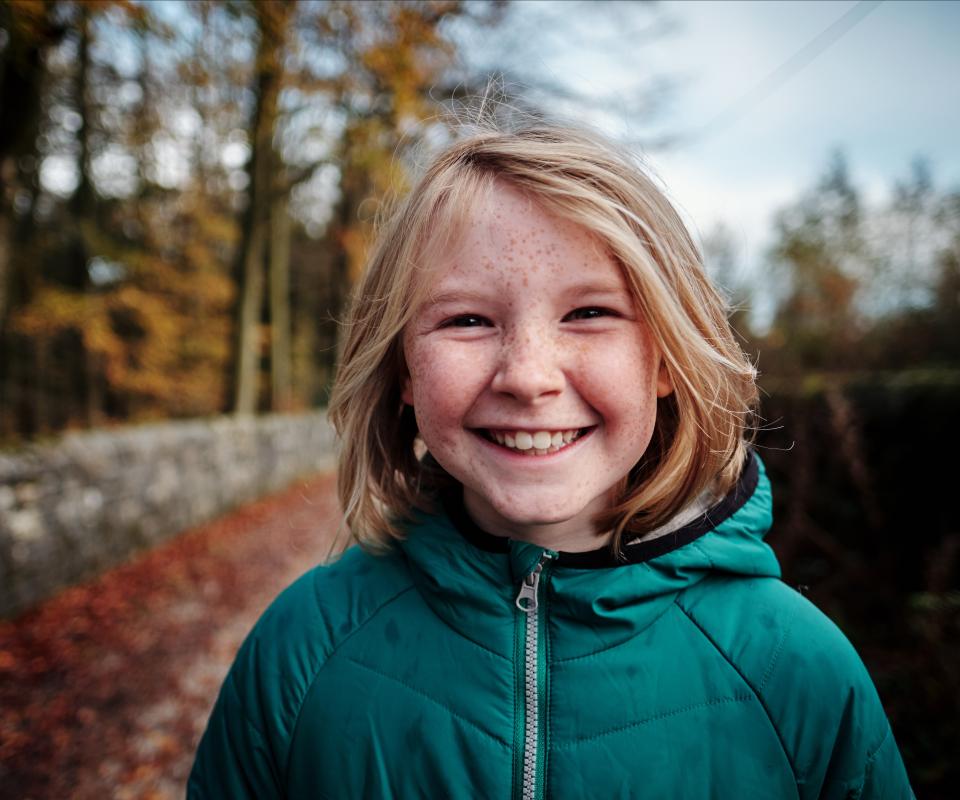
Bürgerfonds Ostbelgien
The Bürgerfonds OStbelgien is a fund by East Belgians for East Belgians. It supports initiatives and organisations that work for fellow citizens, true to the motto 'moving more t…

Ernest du Bois (Fund)
Support for promising engineering students as well as for projects combatting water poverty.
Hestia (Fund)
The Fund is committed to providing quality housing for people in need, supporting social economy initiatives and allocating loans to African entrepreneurs.
Other press releases

Homelessness: establishing numbers to better fight the problem
Results of homelessness counts, organised at the end of 2021 on the initiative of the KBF in Charleroi, Namur, the southern part of West Flanders and the Vilvoorde area.
